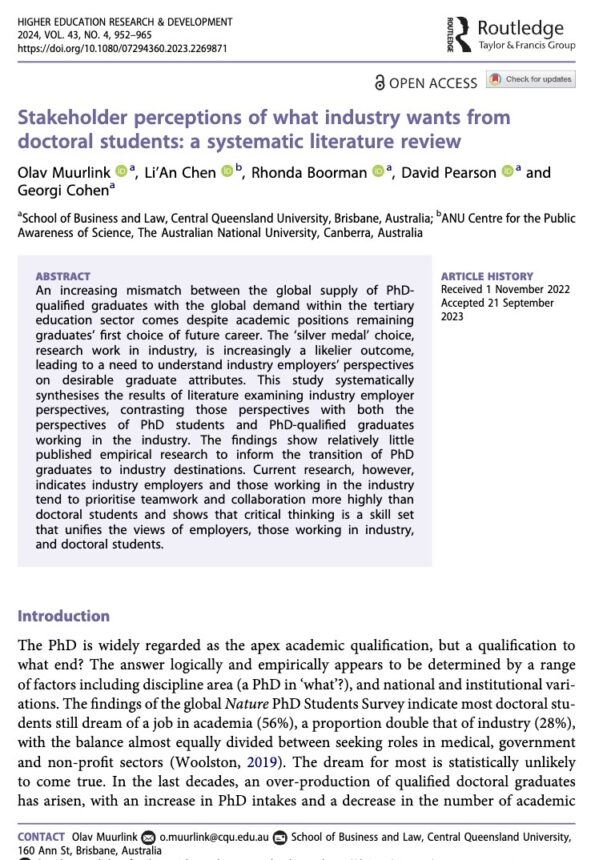Recommended audience(s):
PhD candidates; PhD holders; postgraduate trainees and postdocs
Review prepared by:
Seyed Emad Askarinejad, Ph.D
This study examines the employability of PhD graduates transitioning from academia to industry, addressing the mismatch between graduates’ academic training and industry expectations. By synthesizing literature, it explores perspectives from three key stakeholders: industry employers, PhD graduates working in industry, and PhD students, identifying the skills deemed essential for industry success. The study’s primary goal is to evaluate the skills required for PhD graduates to thrive in industry and to assess alignment between stakeholders’ perceptions.
A systematic review of 11 primary studies, drawn from 1,340 initial records spanning the past decade, identified 40 unique employability skills. Among these, critical/analytical thinking, teamwork, communication, and technical knowledge ranked as the top eight. Results revealed a clear misalignment between PhD students’ perceptions—prioritizing research and technical knowledge—and industry’s preference for teamwork and collaboration. Moreover, employers and PhD-qualified employees largely agreed on the skillsets necessary for industry, contrasting with students’ narrower focus.
The findings highlight gaps in doctoral training, particularly in mentorship and career guidance, with supervisors playing a critical yet often untrained role in preparing students for industry careers. Additionally, the study raises critical questions about whether skills required in academia and industry are identical, how they are operationalized in different sectors, and how academic programs can better prepare graduates for diverse career paths.
To bridge these gaps, initiatives such as structured internships, industry-academia collaboration, and clearly defined learning outcomes are recommended. However, barriers like poorly defined internship goals and limited mentorship training persist. Addressing these challenges could enhance employability, foster smoother transitions to industry, and ensure doctoral programs align with broader career opportunities. Future research should explore how industry expectations vary by sector and develop tailored strategies to prepare PhD graduates for non-academic roles.

